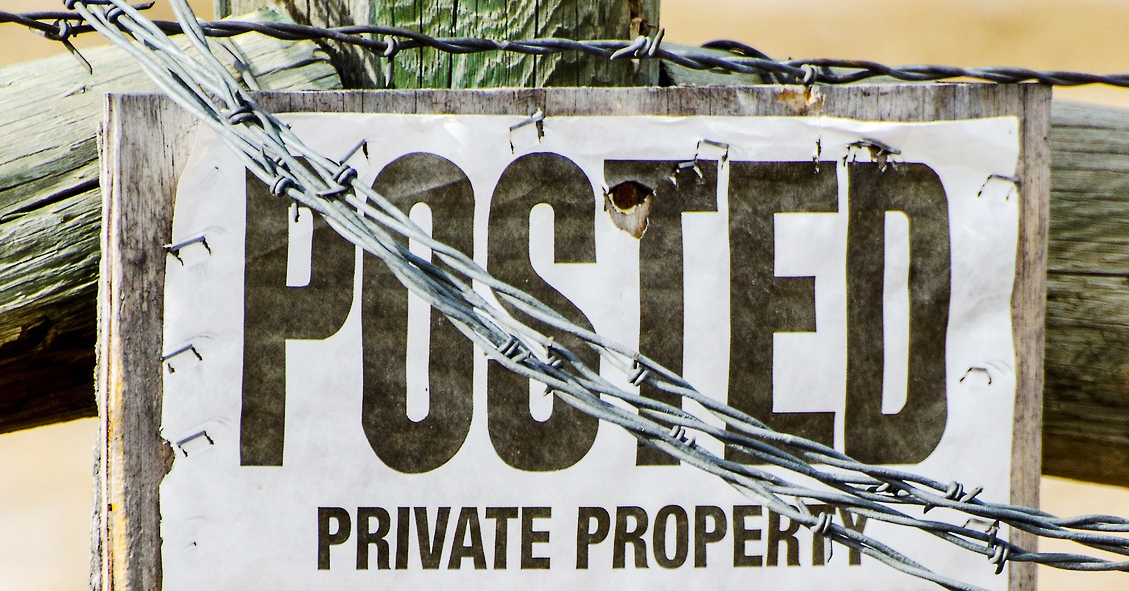PA Trespassing Law – A Comprehensive Guide
You've undoubtedly seen a sign posted somewhere reading, "No Trespassing." Maybe you were hiking. Or perhaps you were walking down a street and noticed the sign on someone's property.
Worst still, you might have thought it was of little concern walking into an area designated as no trespassing. You likely weren't aware that trespassing can lead to criminal charges with jail sentences of a year or more. Or that you could face a suit for civil damages.
The last thing that crossed your mind is that you could need a criminal defense attorney to help defend you against a trespass charge.
Make no mistake. Trespassing in PA is serious business. As a property owner, the Commonwealth gives you the right to keep people off your property. And as someone entering a property, you should fully grasp the consequences.
What are Trespassing Laws in Pennsylvania?
Trespass refers to entering a private property without the owner's permission. That applies whether or not you enter the property intending to harm. Simply walking across a posted no-trespass area violates the law.
You can also be guilty of trespassing when you enter a property with permission but refuse to leave when asked to do so.
The reality is that trespassing is a complex legal issue. So much so that Pennsylvania statutes identify several offenses resulting in a criminal trespass charge.
PA Criminal Trespass
Criminal trespass is the most severe form, possibly resulting in a second or third-degree felony. To understand the severity, a second-degree felony can land you in jail for up to ten years. It can also cost you up to $25,000 in fines.
You can be charged with criminal trespassing if you knowingly gain entry by subterfuge (deception) into a building or occupied structure (third-degree felony). Second-degree charges relate to gaining entry by force or breaking into a building or occupied structure.
When facing felony charges, you'll want to contact a criminal defense lawyer near you. Our law firm has Bucks, Delaware, and Montgomery County, PA offices.
Simple Trespass in Pennsylvania
This occurs if you enter a property without permission with any of these intents:
- Threatening the property owner or occupant
- Starting a fire on the premises
- Defacing the premises
Simple trespass results in a summary offense. A summary offense is punishable with a $300 fine or 90-day jail time.
PA Defiant Trespass
Defiant trespassing in PA can lead to summary or misdemeanor charges. A person could face a first-degree misdemeanor charge for remaining on school grounds after being told to leave by a school, center, program official, employee or agent, or law enforcement officer.
Defiant trespass requires a notification against trespass by:
- Communication that they should not be trespassing;
- Posting of a trespass notice;
- Fencing or other enclosure; or
- Communication to leave the grounds.
The Purple Paint Law
Apart from the notifications mentioned, landowners can notify you of trespass by painting purple marks on trees or posts. The law took effect in 2020.
Markings must be readily visible and 100 feet or less apart. They must also be eight inches or longer vertical lines and an inch or more wide. Finally, the purple marks must be three to five feet from the ground.
PA Agricultural Trespass
A simple trespass can advance to an agricultural trespass on open or agricultural land. The owner must post a notice against trespass that's visible. Like defiant trespass, a fence or enclosure can signal a trespass notice.
Entering an agricultural property amid the owner's request not to enter or not leave defies a trespass order.
Punishment includes third-degree misdemeanor when posted. That translates to up to a year in prison and a minimum fine of $250. By refusing to leave when asked, the penalty jumps to a second-degree misdemeanor of up to two years in jail. Fines are between $500 and $5,000.
The offense is more severe when the property is an agricultural biosecurity area. If you injure an animal or plant in these areas, you face a misdemeanor of the first degree. That can result in a five-year jail sentence with a $10,000 fine.
How to Provide a Trespass Notice as a Property Owner
As you've likely gathered, PA trespassing law provides numerous ways to provide notice. Any fencing or enclosure offers a notice. As a property owner, you can also tell someone to stay off your property or ask them to leave once someone enters the property.
Signage also constitutes a trespass warning. PA trespassing laws have no stipulations on signage other than your posting is "in a manner prescribed by law or reasonably likely to come to the attention of intruders."
Additionally, you needn't include your name or signature. A simple sign for No Trespassing or Private Property serves notice.
Criminal Defenses Against Trespassing Charges
Contact a criminal defense lawyer if you face trespassing charges in Pennsylvania. They can consult with you and devise a defense strategy. These might include:
- Lack of Intent: This can be a defense if you didn't know you were trespassing or had no intention to do so.
- Consent: If you had permission to be on the property, that's a strong defense.
- Mistaken Identity: A property owner might have mistaken you for someone else. So, if you can prove you were somewhere else, it's a solid defense.
Talk with a Criminal Defense Lawyer at Our Law Firm
Our lawyers can help if you face criminal trespass charges in Bucks, Delaware, or Montgomery County, PA. They know PA trespassing laws and have the experience to craft an appropriate defense.
We have law offices in Doylestown, Norristown, and Wayne, PA. Get legal representation founded in results
